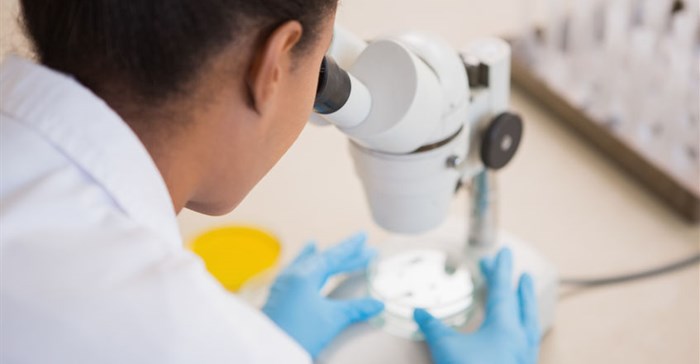
The spread of sickle cell anaemia in Africa is an example of how this can happen. Previously sickle cell anaemia, a group of inherited red blood cell disorders that results in severe pain and often death in young children, was found predominantly in Central and West Africa. In South Africa less than 1% of the population were reported to have the disease. But a recent study found that since 2001 the incidence had increased by more than 300%.
Like many other diseases the diagnosis of sickle cell anaemia relies on both basic screening tests and highly sophisticated investigations. These include blood smear analysis and genetic testing. Highly trained medical technologists and scientists have an important role to play at all stages of this process.
But in many parts of the continent – including South Africa – laboratories lack resources and expertise. As a result they cannot keep up with diagnostic demands, and proper diagnosis and treatment is delayed.
Measures have been put in place to rectify this problem. But neither the quantity nor the quality of medical laboratory technologists will improve unless universities implement a new curriculum.
South Africa has a range of laboratories. These vary from world-class and highly specialised laboratories to small, under-resourced rural labs that lack skilled personnel.
But laboratories, like other health-care facilities in South Africa, are two tiered. Private-sector laboratories are mostly well resourced and internationally accredited. In contrast public-sector laboratories, especially in rural areas, lack funding and properly skilled staff. This system often falls short of meeting the diagnostic challenges facing the country.
There is also a lack of expertise. As a result, test results that could be reported at the point of care are often transported long distances to urban laboratories, which delays the outcome.
Laboratories have lost vital expertise and skills for several reasons. These include professionals retiring and emigrating. And the consequence is a lack of mentorship and proper training for new students.
A further problem is that many medical technologists have not kept up with current knowledge and new technologies. The result is that since 2000 the pass rate of the national board exam has dropped steadily, leading to a further lack of skills and low morale. Some medical technologists are unable to interpret basic test results, identify abnormalities under the microscope or take the appropriate action.
As a result, inadequately trained medical laboratory technologists are a significant problem.
In the past South African medical technologists completed a three-year diploma course followed by a fourth year internship and a final national board exam. After passing, graduates could register with the Health Professions Council of South Africa.
In 2005 it was acknowledged that the current training practices had to be replaced. A new degree, which would improve the practical, theoretical and cognitive skills of laboratory professionals, was proposed. The aim was to produce a medical laboratory scientist who could not only perform the test but would be able to interpret the result and take the appropriate action. This is especially relevant in rural areas where patients have to travel long distances to seek health care.
The new course was introduced at the Cape Peninsula University of Technology in 2011 and the first medical laboratory scientists have been well received by both public and private laboratories. Practical training was improved by forming partnerships between the university and the public and private sectors. This collaboration led to the establishment of two well-equipped skills laboratories that employ experienced technologists who act as mentors to students in their final year.
The initial feedback of the new curriculum has been promising. But only two universities in South Africa have introduced the new degree. Consequently, two levels of qualification exist. This has led to confusion and a lack of standardisation. Most of all it has the potential of further contributing to the problems being experienced by laboratory services in South Africa.
South Africa and Africa require high quality, cost-effective laboratory services to meet the increasing health-care challenges. Such services must extend from point of care to highly specialised testing. Well-trained and knowledgeable laboratory professionals are essential.
It is time that universities and laboratories across the board work together to improve the quality of medical laboratory professionals so that diseases such as sickle cell anaemia and others can be properly investigated and treated.![]()

The Conversation Africa is an independent source of news and views from the academic and research community. Its aim is to promote better understanding of current affairs and complex issues, and allow for a better quality of public discourse and conversation.
Go to: https://theconversation.com/africa